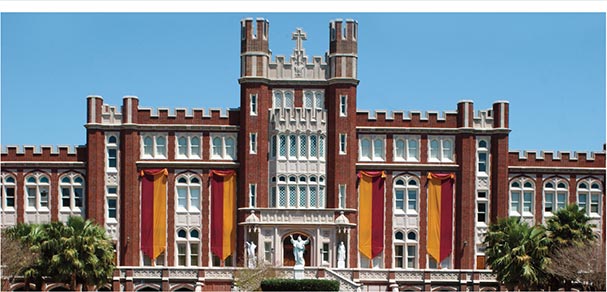SCAP announces enrollment numbers
Marquette Hall
September 24, 2015
At the most recent University Senate meeting, it was announced that Loyola welcomed 661 first-year students this semester and what these numbers mean for the university.
Made up of faculty representatives from all departments and colleges on campus, University Senate members listen and communicate on behalf of their departments to see what’s best for the students and Loyola community. Each month, the council meets to receive crucial updates on the status of Loyola and find ways to improve it.
Roberta Kaskel, vice president of enrollment management, announced that this year’s freshman class is presently 12 percent ahead of last year’s class. There are 661 first-year students currently enrolled at Loyola University.
“This is the solid foundation that we need for a turnaround,” Kaskel said.
Students with diverse backgrounds make up 53 percent of Loyola’s freshman class. Loyola also welcomed 40 re-admits that left and chose to come back. There are 14 Ignatian scholars from eight different states. Of these 14 scholars, five are legacies and one is from Belgium. There are 95 transfer students. Of the freshman student body, 33 percent are Pell Grant recipients.
The senate expressed their concern about the amount of transfers that applied. The staff and budget expected more transfers, but the school fell short of this goal.
Kaskel reported that in order to fix the problem and attract transfers, the admissions office has made agreements with five different community colleges to help students with associate degrees come to Loyola and further their education. Through this articulation program, students with the right amount of credits can finish with a Bachelor’s degree in their specified major.
Kaskel reassured the senate that in order for Loyola to compete on the level of other major universities, the admissions office has sent out recruiters all over the country and overseas to find students that can help Loyola succeed and excel on the scoreboard.
With the spring semester in mind, the faculty is concerned with certain core programs that are at risk of being cut. Ten programs are currently under review for reconsideration by the Strategic Committee for Academic Planning as part of the Financial Equilibrium Plan.
In the report from Marc Manganaro, provost and vice president for academic affairs, it was stressed that new enrolled students will not be affected by the program cuts. Once the program is cut, students will still have a chance to complete their degree.
Joelle Underwood, associate professor of chemistry, said that even with modifications made to the way students can complete their degree, it still will not suffice.
“It will not be a true Loyola education,” Underwood said in the meeting.
Jon Altschul, associate professor of philosophy and university senate chair, said that deliberation is the most important goal to keep in mind when the senate meets. Through this, Loyola is able to compete and stand as a university.
“Preserving academic freedoms are fundamental. Without them, we wouldn’t be able to call ourselves a university. We have to find a compromise to draft policies while keeping academic freedoms,” Altschul said.







